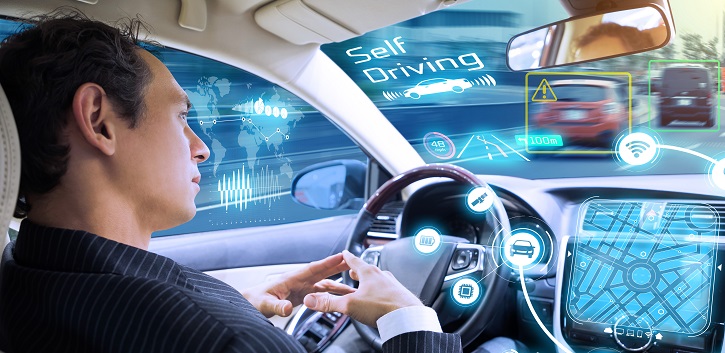Driverless vehicles: UCC researchers address future challenges

University College Cork (UCC) researchers are part of a new €4.2m research programme focused on the challenges facing the use of driverless vehicles.
Professor Gregory Provan (programme leader), Dr Aisling O’Driscoll, Professor Cormac Sreenan, Dr Hossein Ajorloo, and Dr Paolo Palmieri from UCC are part of the research programme.
Launched by Heather Humphreys TD, Minister for Business, Enterprise, and Innovation, the research will focus on challenges facing the use of driverless vehicles in environments with pedestrians, animals and human-operated vehicles.
Professor Anita Maguire, Vice President for Research and Innovation, UCC, said: “This is a particularly exciting area of research with several fascinating challenges ranging from network connectivity to pedestrian safety. The involvement of UCC researchers demonstrates the calibre of work carried out at the CONNECT and Lero research centres in our School of Computer Science and Information Technology.
"I welcome in particular the involvement of industry partners who will provide expertise in the application of this emerging technology, as well as expanding the professional experience of the PhD and postdoctoral researchers who will be involved.”
The research programme is a collaboration between three Science Foundation Ireland (SFI) research centres - CONNECT, Lero and Insight.
The researchers will work with multinational industry partners such as Jaguar Land Rover, Kostal, Liebherr and Valeo; and Irish companies including Combilift, Dairymaster, Greenval, Mobimetrix, PMS Pavement Management Services Ltd, Reamda and Transpoco.
CONNECT-funded Investigator Dr Aisling O’Driscoll, who will work with industry partners on three separate projects, said: “The launch of this collaboration is a significant development as it brings together researchers from three key areas: software, analytics and connectivity. CONNECT's researchers will focus on the connectivity challenge."
Connectivity is of central importance for autonomous vehicles, which will need to communicate and share information with each other, with the city infrastructure and with vulnerable road users such as pedestrians and cyclists, she said.
"Working with our industry partners, we will explore ways to make communication networks faster, more reliable and capable of handling increased information flows, while preserving privacy. Ultimately, the goal is to make transport safer, less congested, and more environmentally friendly," Dr O'Driscoll added.
Professor Cormac Sreenan, Deputy Director of CONNECT and Head of School of Computer Science and Information Technology, will investigate the emerging industry standard for driverless cars (first draft set to be released in December 2019), focusing on its ability to meet the stringent communication requirements such as extended sensing, cooperative manoeuvre, and cooperative safety.
Dr Hossein Ajorloo will examine the use of millimetre waves for the high data rate communications required by driverless vehicles, and Dr Paolo Palmieri will focus on security and privacy issues arising from the growing use of such connected vehicles.
Speaking at the programme launch, Minister Humphreys said, “Future Jobs Ireland is all about embracing innovation and technological change and this type of project is a great example of the capacity we have here in Ireland to be at the forefront of these cutting-edge developments. It is especially pleasing that in addition to the involvement of our universities this research also involves companies in Kerry, Galway, Clare, Limerick, Cork, Dublin and Monaghan.”
Dr Siobhan Roche, Director of Science for the Economy, Science Foundation Ireland said autonomous systems (AS) represent a disruptive technology that is a crucial component of many industries, all of which are key to Ireland's future growth.
"The research knowledge gained in this programme will help to build world-leading capability in AS, helping to establish Ireland as an important player in the autonomous IT eco-system and delivering outcomes that can play a significant part in Ireland’s economy.”
